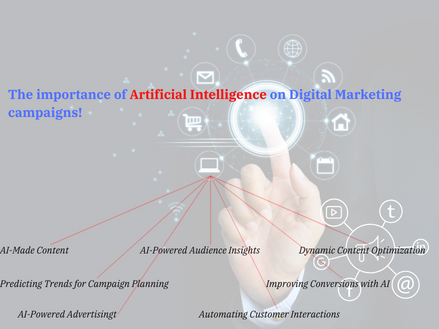In the competitive landscape of the tech industry, start-ups often face the difficulties in standing out among the competitors.
While innovative products and services are crucial, effective content marketing can be the key to gaining visibility, building credibility, and ultimately driving growth.
In this blog, we’ll explore actionable strategies that tech start-ups can implement to create impactful content and propel their brands to success.
Here are few of the guidelines:
1. Know Your Audience Before diving into content creation, it’s essential to understand your target audience inside and out. Conduct thorough research to identify their problems. This knowledge will inform the type of content you produce the content that will provide solution to the audience problems.
2. Define Your Unique Selling Proposition Tech start-ups often operate in crowded markets, making it vital to articulate what sets your brand apart. Your content should clearly communicate your unique selling proposition (USP) and highlight how your products or services address specific challenges or fulfil the needs in the industry.
3. Create High-Quality, Educational Content: In the tech world, where knowledge is power, educational content reigns supreme. Develop knowledge sharing contents for your audience. The topic can be around the on industry trends, best practices, and innovative solutions. This could take the form of blog posts, whitepapers, case studies, or how-to guides. Remember to keep your content informative, engaging, and easy to digest.
4. Leverage Visual Content Incorporating visual elements such as infographics, videos, and interactive graphics can significantly enhance the effectiveness of your content marketing efforts. Visual content is not only more engaging but also easier for audiences to consume and share on social media platforms, extending your reach even further.
5. Embrace Thought Leadership Establishing your start-up as a thought leader in your niche can help build trust and credibility with your audience. Publish insightful articles, participate in industry forums and events, and seek opportunities to share your expertise through guest blogging or speaking engagements. Positioning your founders or key team members as industry experts can also elevate your brand’s reputation and visibility.
6. Optimize for SEO Ensure that your content is optimized for search engines to increase its visibility and attract organic traffic to your website. Conduct keyword research to identify relevant terms and phrases that your target audience is searching for, and incorporate them strategically into your content. Additionally, optimize your meta tags, headings, and URLs for maximum SEO impact.
7. Engage with Your Audience Don’t just create content—engage with your audience actively. Respond to comments on your blog posts and other social media platforms. Participate in the various forums and discussions. Engage with the audience to create a brand impact.
8. Measure and Iterate Always track the performance of your content marketing efforts. Monitor key parameters like the website traffic, engagement rates, and conversion rates to analyze the effectiveness of the content. We need to identify what is working in the content marketing strategy and we need to make the necessary corrections.
In conclusion, effective content marketing can be a game-changer for tech start-ups looking to carve out their place in the market.
By knowing your audience, defining your unique selling proposition, creating high-quality content, and embracing thought leadership, you can create a powerful narrative that resonates with your target audience and drives meaningful results for your business.




